We #ChoosetoChallenge
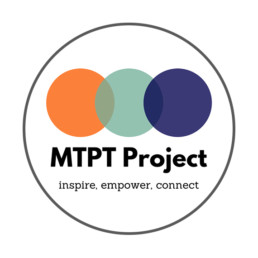
Written by The MTPT Project
The UK’s only charity for parent teachers, with a particular focus on the parental leave and return to work period.
Mothers’ Day always falls conveniently close to International Women’s Day and this year’s theme, #ChoosetoChallenge provides the perfect opportunity for The MTPT Project to showcase all the ways that our community members have challenged limiting stereotypes associated with parenthood.
Does a woman ‘leave before she leaves’, as so well explored in Sheryl Sandberg’s Lean In? Not, according to Madeleine Fresko-Brown, North London and Jewish Teachers’ Advocate for The MTPT Project. Madeleine interviewed, very obviously eight months pregnant, for her first SLT position before the birth of her first daughter, and has since stepped in and out of her role over a second maternity leave, building and sustaining effective models to secure the best leadership for her colleagues and students.
Does a woman lose all ambition when she becomes a mother? Not, according to Nadine Bernard, Head Teacher of Van Gogh Primary School, committed to coaching and mentoring aspiring principals and speaking up on the topic of exclusions and BAME leadership. Nadine returned from her third maternity leave this year and her social media accounts are an inspiring showcase of balance of personal and professional ambition.
Are all women natural, fertile earth mothers who sneeze and become pregnant? Not, as championed by The MTPT Project’s Fertility Advocate, Nicola Mooney, who speaks openly about her IVF journey, the practical logistics of trying for a family, and the ways in which schools can support teachers through this process. Or Adoption Advocate, Alex Mason who speaks candidly and confidently about adopting and her experiences of adoption leave as a parent-teacher.
Do all mothers require part-time hours in order to balance their personal and professional commitments? Not, according to Naomi Shenton, Ipswich Regional Representative for The MTPT Project who works full time as an Assistant Head Teacher, authoring chapters for the second #WomenEd book, Being 10% Braver and championing family-friendly practices in her school.
Equally, does the need to work flexibly in order to be present for our children indicate a lack of commitment or ability to fulfil leadership roles? Not, according to Liz Robinson and Nicola Noble who, for years, courageously provided an avant-garde model for co-headship, unashamedly pursuing fulfilment as school leaders and mothers, way before the recent positive trend towards flexible working.
Are all mothers the full time care-givers? Not, according to Jenny Webb, Trustee for The MTPT Project, Assistant Head Teacher, CPD provider and author of three edu-texts who regularly explains the teamwork between her and her husband who acts as the main caregiver around his own career in the arts industry.
Is our current model of parental leave inclusive and empowering of all parents? Not, according to Iesha Small only entitled to paternity leave as a Maths teacher when her wife gave birth to all three of their children, or Chris Reddy, who surprised his colleagues when he took five weeks paternity leave to be present in the early days of his sons’ lives.
At The MTPT Project, we #ChoosetoChallenge the assumptions and biases that society still attaches to the role of motherhood and parenting so that our teachers are not limited by oppressive stereotypes and disempowering systems. Instead, we encourage teachers to make choices that work for them and their families, and celebrate their successes – both at home and in the classroom.
To make change, we must learn to listen
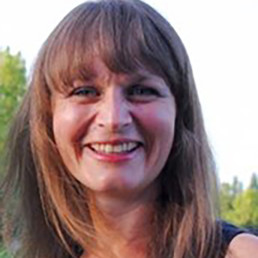
Written by Donna Burkert
Primary school teacher living and working in Essex.
There is an inherent danger in judging others before we know them, in excluding before understanding, in condemning before listening, and yet it happens all the time.
It wasn’t until the Laurence Fox scandal hit the headlines that I really became aware of the title ‘white privilege’. A title that Toria Bono recently discussed in her podcast ‘Tiny Voice Talks’ when talking with Shuaib Khan. A title, that like Toria, I have to own.
I am white privileged and I have realised this means that, although I try to use diversity, equity and inclusion in all that I do, I may not always be truly aware of the wider picture.
It is only through listening to experiences and questioning my own actions that I can begin to understand how to become more diverse, more inclusive, to bring more equity to my classroom and the way I conduct my life.
It was whilst attending a #BrewEdEssex event in June 2019 that I heard Pran Patel speak. Pran was talking about descriptions, judgement and social equity in a way that I had never considered before. He addressed bias, privilege and the damages of the ethno-centric curricula. His words made me stop and reassess what I was teaching in my class.
Pran talked about the need for children to see role models of their own culture, background or religion and so I set about ensuring that I had examples from across the world, throughout history and today, to represent the broad spectrum of difference within my own class, the impact was immeasurable. It opened up discussions between children who were now questioning moments in history that had specific impact on their lives today.
It was whilst listening to podcasts of Desert Island Discs that I was given a tiny insight into the lives of Bernadine Evaristo, Professor of Creative Writing at Brunel University and Booker Prize winner for her novel: Girl, Woman, Other; and Baroness Floella Benjamin DBE – A Trinidadian-British broadcaster, writer and politician, that I learned of the struggles that they and their parents faced, the lack of equity, the lack of inclusion felt.
Sue Perkins: An hour or so with David Harewood – the first black actor to play Othello at the National Theatre and David Tennant does a podcast with George Takei – Star Trek icon, similarly opened my eyes to the struggles so often felt by others that I was simply not aware of.
I reflect back to the focus of Toria Bono in her podcast with Shuaib Khan where she accepts the title of ‘white privilege’ with the acknowledgement that she cannot change that this is what she is, but that we can develop our understanding with the constant need to question and push for diversity, equity and inclusion. That by continuing to have conversations with a broad range of people we can all gain a better understanding of others that will influence our decisions and actions.
The conversations I have with my own three sons about the effects of sexism in order for them to have some understanding of the barriers often faced by women are as important as the discussions I have with the children in my class about their own struggles, my colleagues and the wider communities that I am part of through Twitter and other forums. I am aware that I need to have continued discussions with a broad spectrum of people, beyond my immediate circle, to ensure that I am being as diverse and inclusive as I can be.
I need to accept that I may not always term my questions correctly but that the only way to learn about the constraints that restrict me, and others, is to ask the questions; and to break down the barriers that hold us back from being truly diverse within our own practice.
It is only through widening our circle, through talking and really hearing what others’ are saying, in taking action where needed, that we will truly begin to move forward.
Say My Name

Written by Raisa Shaikh
English Teacher, Head of Key Stage Five English, Diversity and Inclusion Co-Chair
Despite it being an absolute classic (tune…banger…whatever else my students call it), this isn’t a piece about the Destiny’s Child song.
It’s about how your name is the gateway to your identity. Think about it.
Your name is the first thing you reveal to complete strangers in any scenario. Not only that, but it brings with it many layers including your heritage, family history, language and meaning.
To learn a person’s name is to acknowledge and engage with who they are at the most basic level, with the hope of forging a strong, meaningful relationship as time goes on. I believe the exact same ethos applies within education whether it be fellow staff or students.
However, pre-Covid I was reminded that this is not always the case.
This reminder came in the form of being put on last-minute cover (the joys) for a Year Nine English class. Once the students had settled in the classroom and were reading in silence, I began taking the register and read the name “Adua” out loud. The serene silence was broken by a flurry of hushed whispering amongst the students and after asking what the matter was, a boy raised his hand and said to me:
“It’s nothing bad Ma’am, just that it’s the first time someone’s gotten Adua’s name right”.
He was seated next to Adua, who smiled at me in a way that read “Thank you, but can we also all stop looking at me right now”. I didn’t linger on it for much longer and mentioned to her that I’m glad I’d gotten it right, but it did make me think:
- They’re in Year Nine, is this really the first time someone’s said her name correctly?
- Do others ask her before-hand how to pronounce her name?
- Would she or any other student feel confident correcting a mispronunciation?
- What’s the right way to even tell someone that they’ve mispronounced your name?
A similar thing occurred when I found out that I’d been saying the names of one of my Year Eleven students incorrectly for a while without even realising. When I apologised to them, they said with a very dejected tone that it ‘didn’t matter’ and that I could ‘call them whatever’ I wanted because ‘nobody gets it right anyways so it’s just easier’.
Strangely, my attempt to comfort them came out as a loud “NO!”, followed by a rapid explanation in response to their raised eyebrows that names are important and that teachers need to get the basics right with their students. Upon further reflection, I also began thinking about growing up with my own name as a student and throughout my teaching career so far. From having a co-worker tell me that “Ray” would be much easier for them to say, to a university professor combining my name with a classmate’s name and addressing us both with that ‘new’ name multiple times, I realised that the gateway to my identity had not always been acknowledged.
So why didn’t I say anything?
In the past when I tried to correct people’s mispronunciations or misspellings, I would be met with a barrage of laughter followed with the all-too-familiar “It’s just a joke”, “Take a bit of banter”, “Stop being prissy” or was just ignored altogether. It became incredibly hard to say something only to be met with dismissal or the feeling that you were being the difficult, awkward one by drawing attention to yourself instead of just “getting on with it”.
This is not to say that those who repeatedly mispronounced or misspelled my name were automatically racist. Rather they displayed a sense of laziness, ignorance and a profound unwillingness to accept that their actions made another person feel devalued and invisible simply because it was not their “intention”. However, with the discussions and actions that are taking place amid the global outcry against injustice last year it is clear that a person’s intention does not automatically equal exoneration. There is no excuse anymore.
Sometimes as teachers we forget how much power we actually have in the classroom and that our words and actions carry permanence. When it comes to pronouncing and spelling names of our students there is nothing wrong with taking the time to ask. Instead, it provides students with the agency to establish communication and assert their individuality from the outset.
The exact same can be said of the workplace. Staff members deserve agency just as our students do and we can all afford to take that extra two minutes to make sure we get it right. Nobody should have their name morphed into something else by someone else and then be made to feel as though they have to capitulate to that person’s ignorance (regardless of intent), in order to avoid being labelled “difficult”.
Your name is the gateway to your identity.
Own it.
Say it.
Reflections on My First Term as D&I Lead
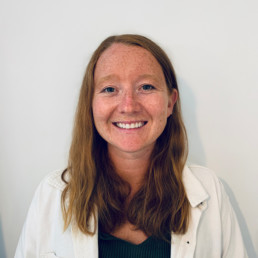
Written by Jami Edwards-Clarke
Director of D&I at Hurstpierpoint College, Housemistress and PE Teacher
As I sit and reflect on my journey so far as Director of D&I at Hurst, I am overwhelmed with positivity, hope and joy. What has been achieved since March 2020, is something Hurst’s community should be extremely proud of. Every initiative has been fantastic and that’s down to our pupil platform. They have been the engine throughout this journey and the work they have put in to ensuring its success, is phenomenal. It’s evident that there has been a visible amount of real, meaningful and immensely valuable progress and I am so proud of what has been achieved.
Upon returning to the college in September, the platform began arranging our first big event: Black History Month in October. As curricula still all too often erases Black existence and achievements in history, we wanted to encourage students to engage with this annual celebration as a starting point for learning outside the curriculum. We put up posters just about everywhere and kicked each week off with an email full of resources like books and films which could help students learn about Black history.
The next date on our agenda was the UN Disability week in December, with the theme ‘not all disabilities are visible’. Students often receive little education about disability and how to treat people with disabilities. We started to change that, with daily emails containing videos or articles that we hoped would broaden people’s understanding of disability. A shout out to Luke Morris and Mrs Naumann for heading this up, the work you put into making this a success was superb.
As well as celebrating such events, Hurst pupils have been inspired by several speakers. Outside speakers include polymath Sophie Cook, the first transgender woman to work in football’s Premier League; Abdi Omar, a motivational speaker and Youtuber who lives with cerebral palsy; and Siya Twani, who was imprisoned for speaking out against injustice in South Africa – to name but a few. Additionally, members of the D & I group have delivered assemblies to the Shell and Fifth form on the aspects of Diversity & Inclusion that the platform hopes to promote across the college. The D & I group also created a PowerPoint slideshow, like the assemblies, to be presented to Year 7 & 8 by the D & I pupil ambassadors in the Prep School – who’re equally as keen and motivated to enact change in the college as those in the senior school.
We have not been deterred by lockdown either, with Teams Q&A sessions with figures like Harry Hitchens, an ex-Hurst pupil who is now a key figure in the fight to Ban Conversion Therapy in the UK, and Devin Ibanez, a USA rugby player who is openly gay despite the stigma which remains in the sport. In fact, one advantage of online talks has been that parents can tune in too: 57 families watched Jude Guiatamacchi’s talk on their experiences as a non-binary model and campaigner. These thought-provoking talks have been incredibly valuable in giving students, parents and staff an authentic and ‘real life’ perspective on such important topics.
D& I’s weekly Friday lunchtime meetings continued remotely and have also provided the opportunity for more talks – this time by teachers within the school. Highlights include Miss Cave and Miss McNeill’s talk on mental health, and Mr Cuerden’s frank discussion of his experiences at the time of the HIV/AIDS pandemic. Additionally, Mrs Watson-Saunders delivered a powerful speech during the staff inset on her experience of being a person of colour in the UK. This teacher engagement with D&I is incredibly exciting – HoDs have been encouraged to reflect on their department’s curriculum to make it more inclusive; the History department have done a talk reflecting on Black London, hosted by Olly Ayres, the Drama department is planning to put together an LGBTQ+ themed monologue and the Art department have had a Black Lives Matter focus; a sign of change across all levels of the school.
D & I have also been looking for ways to engage not only pupils but also parents. That’s why we have teamed up with Hurst’s Climate Awareness Group to create the Engage for Change newsletter, a monthly newsletter, sent to all Hurst pupils and parents. It contains articles written on a broad range of issues, from pollution to body positivity – all written by Hurst pupils from Shell to UVIth under the direction of Ms Lewis, Mr Jordan and Mrs Edwards-Clarke. The newsletter includes think pieces, advice, and interviews with pupils, staff and parents. Look out for the third volume in your inbox next month!
The READI group (Rainbow Education Alliance of Diverse Identities / Individuals), a subsection of D & I, also began meeting during a Monday lunchtime towards the end of the second Half of Michaelmas term. The aim of this sub-group was to provide a safe space to talk about the experience of being LGBTQ+. In the first meeting of the group, we introduced ourselves, with those who were confident talking about their experience of being LGBTQ+, something which allowed people to overcome barriers – if individuals thought they were previously alone in their experience of being LGBTQ+, they knew that this was no longer the case. Something that came from this group was conversation over ‘identity and gender’. This got us onto the development of a gender-neutral uniform for the college. This takes time to get right, and there have been numerous meetings with SLT and discussion groups between staff and students to ensure pupils feel heard. However, we still have a bit of work to do in this domain, as we do not want to rush this process. We want all voices heard and a plan that suits all. We are hoping for some changes to come into place for September 2021.
Lastly, I think it would be completely outrageous if we didn’t talk about what we are celebrating throughout February, so far, I would say it has been our biggest success. Hurst has thrown itself into celebrating Pride History Month with a push from the pupil platform and our marketing team. Planning started in January, with guest speakers taking the stage (Teams) for whole school tutorials. These events saw up to 500 pupils all tuned in for very exciting Q&As. The month started with a Prep and Senior School wide video made by a range of staff and students responding to what ‘pride’ meant to them, and why it’s important we celebrate this month. It was fantastic to see the prep school speak alongside senior school – feeling like a true moment of community during online learning. The weekly emails sent out by the amazing Ms Lewis highlight a few media options for staff and students to engage with and this has been well received. There have also been some initiatives for students to get involved with, like an Art department creative challenge to produce a timeline of events in LGBTQ+ history. Additionally, we offered LGBTQ+-themed books to any students and staff who wanted to get involved, sharing their views after the half term in a book-club session and even a PHM Bake Off! The involvement is going well and hopefully we can make this an annual initiative. Something that I personally enjoyed was connecting with OJs ( some dating back to 1979!) on their own LGBTQ+ memories back when they were at the College. It’s safe to say, that the work we are doing presently, has brough much joy and it’s evident that huge progress has been made. I really do hope we can form a stronger bond on all things D&I in the future with our Hurst Foundation programme, as it’s all about creating a strong relationship of past and present to really encapsulate the ‘community’ feel.
What has easily been the highlight of the month is the fantastic tutorial talks we have had. Speaking from a pupil, staff and parent point of view, the feedback and engagement has been first class. The range of experience and viewpoints from Jude (a transgender, non-binary activist and model), to Harry (a gay, male activist) to Sarah and Leah (professional athletes, competing for GB and Wales in hockey). The eloquence, respect and genuine interest the student-body has reinforced why it’s important we as a school engage in celebrating LGBTQ+ History month. We are really proud at Hurst to be taking such a lead in celebrating all things diversity and inclusion, and we appreciate the active support the parent-body has shown us this month. Something that has really resonated with me from all of the online CPD sessions and Q&A discussions is how effective having a positive presence of allies and role models. Typically, people get inspired to do something when they see others like them do it and I believe as educators we have a huge responsibility in supporting, guiding and listening to everybody as the individuals they are, both academically and pastorally. We also have a significant responsibility in challenging those who do hold adverse opinions. Standing up for respect and kindness is something I stand by and with our mantra #Be #Yourself at Hurst at the forefront of this initiative, I will continue to do my absolute best to make sure every pupil and member of staff feel that they can stay true to just that.
Wellbeing Lessons for the Diverse Primary Classroom: Teaching Through Inclusive Practice
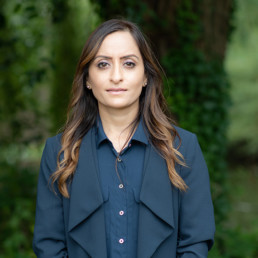
Written by Manisha Tailor MBE NPQH
Former Deputy Headteacher and Author, 50 Wellbeing Lessons for the Diverse Primary classroom.
Teaching about wellbeing through inclusive practice is about ensuring that all young people feel like a valued member of their school community and beyond. It is about ensuring that all those who have a duty of care and commitment to the welfare and safety of children demonstrate responsibility in making sure mental health and wellbeing is at the heart of school ethos and culture.
Learning about mental health must be developmental, and for young children, rehearsing ways of asking an adult for help, persevering and showing resilience if they find something difficult, lays the foundations for confidently accessing sources of support when they are older.
There is a growing mental health crisis in schools and mental health problems affect children in every country across the globe.This pandemic is changing the lives of people, including the lives of children all over the world. A recent study by the Mental Health Foundation UK found that young people are feeling more anxious, a trend which is 10% higher for black and mixed heritage children. Research from the World Health Organisation suggests that 1 in 8 children have a diagnosable mental health disorder and globally, depression is one of the leading causes of illness and disability. Furthermore, in 2017, suicide was the most common cause of death for both boys (16.2% of all deaths) and girls (13.3%) aged between 5 and 19.
How can we impact learning based on what we know?
Mental Health is also very closely linked to poverty, discrimination and overall health and wellbeing. Teaching through inclusive practice is designed to support teachers in promoting social and emotional wellbeing within a diverse classroom, inclusive for all learners. Children will experience lots of highs and lows and at times in rapid succession. They will go through situations that make them feel excited, exhilarated and happy, to sad, disappointed and frustrated, caused by change in environment, missing friends, bereavement or change in circumstance e.g. parents loss of job and income as a result of the pandemic.
This rollercoaster of emotions can cause emotional suffering leading to poor self-care, personality change and withdrawal. It is therefore important that children are given the opportunity to reflect upon the ways in which they can control, regulate and self-manage their emotions and recognise their impact on others.
Children learn morals, values and beliefs from their family, peers, teachers, the media and others around them. The influence from this socialisation informs their view of the world and their view of others. This can lead to stereotypes and prejudiced views of individuals and groups of people. The way in which they treat others as a result of these views can have an impact on the emotional health of the victim. This could include racism, disability discrimination or homophobic abuse.
Our detailed lessons plans and supplemented resources help to promote discussion with each lesson plan containing learning outcomes, activity descriptions and further questions to stimulate critical thinking, especially around areas of diversity specific to race, culture and LGBTQ+. The content covered in this resource includes topics such as the psychological impact of discrimination, the Black Lives Matter movement, Islamophobia, disability, prejudice, coping with loss, feeling left out, moving school and managing as a young carer.
The message is simple and clear – representation matters if our young people are to grow as independent, resilient, life-long learners, equipped to manage the adversities that life presents.
We want to be able to provide young people with the opportunity to explore their feelings and understand empathy and reflect, ask questions, analyse and find solutions through open discussion and collaboration on the things that matter to them. Helping children to reflect, feel comfortable to ask questions and most importantly, feel as though they can talk about their feelings and emotions, without fear of judgement will lead to improved mental wellbeing.
Preparing children for the complexities of life in an ever-changing world will help them to develop resilience and adaptability as 21st-century life-long learners.
50 Wellbeing Lessons for the Diverse Primary Classroom is available to pre-order:
Routledge Education:
Amazon:
https://www.amazon.co.uk/Wellbeing-Lessons-Diverse-Primary-Classroom/dp/0367708264
WHSmith:
Waterstones:
References:
Samaritans:
Mental Health Foundation: https://www.mentalhealth.org.uk/statistics/mental-health-statistics-uk-and-worldwide
Mental Health Organization:
https://www.who.int/news-room/fact-sheets/detail/mental-disorders
Diversity and Inclusion through the use of art and philosophy in the STEM curriculum
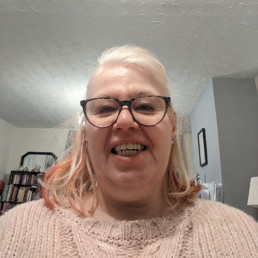
Written by Dr Christine Challen
23 years research experience in the field of cancer research. She has taught at Higher Education, Further Education and more recently as a Supply Teacher in Secondary Schools.
“Imagination is more important than knowledge”
“Education is not the learning of facts but the training of the mind to think” Albert Einstein
One of the many challenges schools face is to explore ways in which to enhance diversity and inclusion in the curriculum. The Chambers Dictionary defines diversity “as the state of being diverse/different.” In order to be able to respectfully acknowledge different cultures, opinions and learning/social barriers through either mental health or special needs you need to know you! Importantly you need to have self belonging and esteem to be proactive towards diversity and inclusion. While the cruel arrival of covid 19 has increased the inequality gaps it has provided a
catalytic incentive for rethinking education and curriculum. In particular,ensuring that it strives to support diversity and inclusion through strategies that consistently and continually enhance “passionate self-reflection” and consistent metamorphosis through “first hand experience and immersion in the living.” If we want to achieve this we cannot do it solely by a subject based education but additionally require a holistic journey embedded within the curriculum to support self-actualisation through a transient passage of being becoming and thriving.
During lockdown I have been somewhat surprised at the amount of non-pedagogy literature which links the use of art, philosophy literature and nature to a sense of becoming independent, resilient innovative spirits. This made me reflect and question; how we could implement such strategies and techniques to improve diversity in education. This approach could not only improve positive and effective emotional responses but also embed much needed tolerance towards enhancing awareness of diversity and inclusion. These attributes are essential for our children to be successful in society and develop diverse global and cultural communication skills enabling resilience and emotional regulation towards education for diverse social justice. As Amber Makaiau states “It’s important that we make room for this learning how to get along with one another…. People skills being conscious of our cultural differences what makes businesses succeed and economies run.”
Harari (2011) describes the importance of the cognitive revolution; new ways of thinking and communication as being responsible for Homo sapiens thriving by adapting to social changes and behaviour. The recent successful adaptation of Phillip Pullmans’ Dark Materials highlights the importance of exposing children to a wide range of literature philosophers and religious voices to enhance rich experiences and imaginative questioning. This supports the view and statement from Robert McKee that “Storytelling is the most powerful way of putting ideas into the world today” and exploring various literatures from different cultures and social backgrounds is still the key technique for enhancing diversity, inclusion resilience and emotional self reflection. Unfortunately while this is a frequent activity in primary schools, it does not continue in secondary. Such would be impactual in building respectful diverse cultural discussions and enhance emotional regulation which during the “difficult” teenage years could act towards a restorative means for challenging behaviour by providing a safe “pupil voice” environment. The introduction of individual subjects is a necessary transition to secondary school nevertheless it is essential to maintain curiosity and questioning and ensure diverse interdisciplinary subject connection here and beyond. Some of the greatest creative minds including Davinci and Einstein had no formal education. Their ability to think innovatively
and communicate diversely was through art and building.
Davinci’s detailed anatomical sketches are widely used today to enhance the teaching of an otherwise “dull” topic anatomy in medical schools. Such techniques have changed the view of anatomy and allowed an overall different outlook and greater accessibility to the detail ,beauty
and diversity of the human body. I have extended this idea to enhance the teaching of organ systems in biology and cells by getting the pupils to build organs/cells out of sweets otherwise known as “Candy Anatomy.” This extends cognitive skills through “modelling” and supports students’ understanding the different structures and how these relate to function. It encourages and builds team working and social skills as well as creating space for student voice.
Another useful way is to allow students to design their own you tubes while building a three dimensional biological process e.g. DNA translation/transcription. This deepens visual and visceral conceptualisation and broadens deep understanding. These can then be posted on remote learning platforms and used as a means of diverse peer support and discussion.
The use of questioning techniques can be built in simple concepts such as what is a rainbow this can be further developed building in diverse ideas as to how the colours link to physics, maths history, music and literature. Similarly The Beat of Life where pupils build a heart from clay and create story boards as to how it connects with literature music and poetry. Such activities encourage diverse connections between, the sciences, arts, spiritual and musical humanities enabling critical thought analysis necessary for self-development.
Experience and conceptualisation are key to self reflection and belonging towards diversity and inclusion. The relationships/connections between the arts sciences and humanities enable this process and provide an excellent strategy and approach to reenergise self and human stable creative and innovative diverse social and cultural tapestries (Challen 2020)
References
The Chambers Dictionary Thirteenth Edition (published by Chambers Harap Publishers 2014)
Human Values Foundation {accessed 5/11/19}
https://www.valuesbasededucation.com/vbe-guide/vbe-material/articles?layout=edit&id=196
https://twitter.com/HVF_Values
Challen, C. (2020). Rethinking higher education policy and leadership for the 21stcentury: Enhancing strategies for global citizenship and justice. Journal of Higher Education Policy And Leadership Studies, 1(1), 77-81. http://dx.doi.org/10.29252/johepal.1.1.77
Challen, C.(2020). The importance of art/poetry and philosophy in educational leadership, well-being and engagement of STEM subjects.Journal of Higher Education Policy and Leadership Studies, 1(3), 41-54. DOI: https://dx.doi.org/10.29252/johepal.1.3.41

